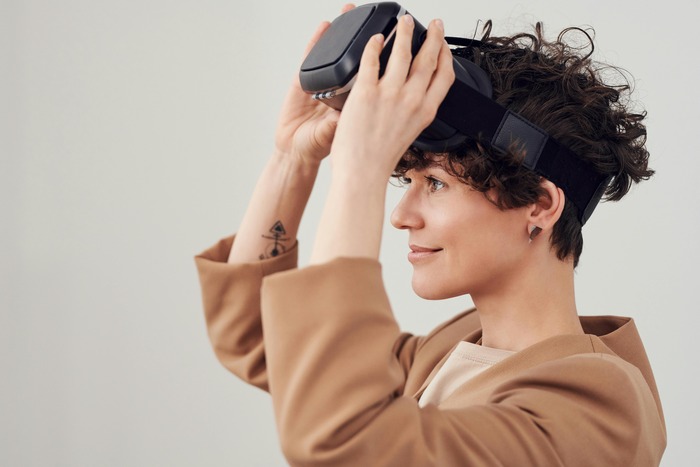In high-pressure jobs, stress is more than just an inconvenience, it’s a constant reality that can impact performance, mental health, and overall well-being. Industries like healthcare, finance, law enforcement, and emergency response demand quick thinking, precision, and resilience under extreme conditions.
Traditional stress management techniques, while effective, often fall short in preparing employees for real-time challenges. Virtual Reality (VR) is emerging as a groundbreaking tool, offering immersive experiences that help professionals develop coping mechanisms, build resilience, and find moments of calm in even the most demanding environments.
Creating realistic stress-training simulations is useful
One of the key advantages of VR in stress management is its ability to recreate high-pressure scenarios in a controlled and safe environment.
Unlike traditional training methods, which rely on lectures and role-playing, using headsets like the Meta Quest 3 for business training allows professionals to experience simulated high-stress situations firsthand, helping them build mental resilience before facing them in real life.
For instance, surgeons can practice handling critical emergencies in a virtual operating room, feeling the pressure of making split-second decisions without real-world consequences. Firefighters can navigate hazardous environments, learning how to stay calm and focused under duress.
These experiences not only prepare employees for the job but also help them develop the psychological tools needed to manage stress effectively.
Guided mindfulness and meditation experiences relieve stress
Beyond training, VR offers stress-relief solutions that allow professionals to decompress after intense work periods. Guided mindfulness and meditation experiences transport users to serene virtual environments, such as tranquil beaches, lush forests, or peaceful mountain landscapes.
These immersive experiences provide a break from the chaos of the workplace, helping individuals reset and regain focus.
Through VR, users can practice deep-breathing exercises, guided relaxation techniques, or immersive sound therapy—all designed to lower cortisol levels and promote relaxation. These tools are particularly valuable for professionals who may not have the flexibility to step away from their high-pressure environments for extended breaks.
Exposure therapy for anxiety reduction is effective
High-pressure jobs often involve facing stressful situations repeatedly, leading to anxiety and burnout over time. VR exposure therapy gradually introduces individuals to anxiety-inducing scenarios, allowing them to build resilience and practice coping strategies in a controlled setting.
For example, a stock trader dealing with high-stakes market fluctuations can use VR to simulate real-world trading scenarios, learning how to manage stress without making impulsive decisions.
Police officers can engage in de-escalation training, refining their ability to remain calm in tense situations. By repeatedly exposing individuals to stressors in a virtual space, they become better equipped to handle them in real life without being overwhelmed.
Improving emotional regulation and cognitive function also improves work performance
Stress isn’t just about feeling overwhelmed—it can also impair cognitive function, leading to poor decision-making and reduced efficiency. VR-based stress management programs incorporate cognitive training exercises that help professionals improve their focus, emotional regulation, and reaction times under pressure.
These programs may include memory games, problem-solving activities, or fast-paced decision-making challenges designed to mimic real-world stressors. By regularly engaging in these exercises, individuals can train their brains to maintain clarity and composure, even in the most demanding situations.
Boosting employee well-being and productivity is beneficial for everyone
Companies investing in VR stress management solutions are seeing tangible benefits, from increased productivity to lower burnout rates. Employees who actively manage stress are more focused, engaged, and capable of handling workplace challenges without experiencing emotional exhaustion.
VR programs designed for stress relief are customizable, allowing businesses to tailor experiences to their workforce’s unique needs.
Whether it’s high-intensity simulation training, guided relaxation exercises, or immersive problem-solving activities, VR offers a scalable solution that empowers employees to take control of their mental well-being while staying at the top of their game.

